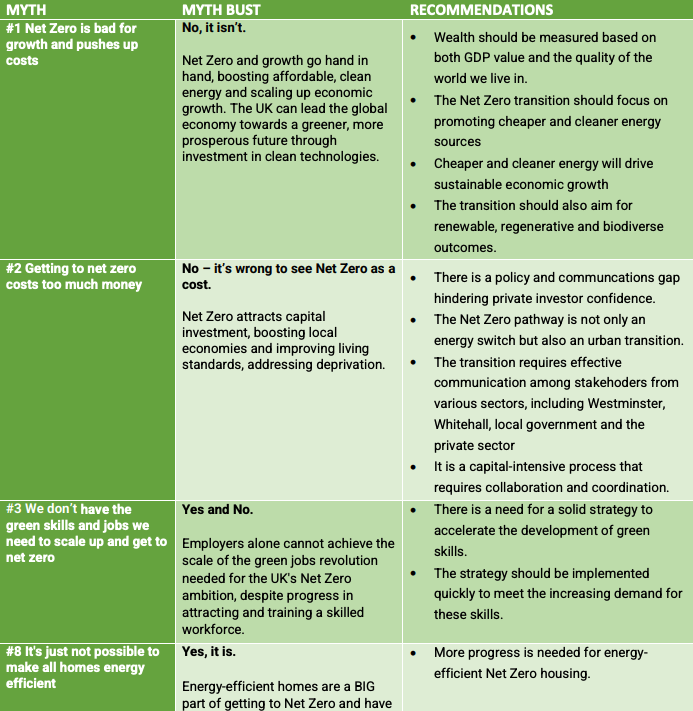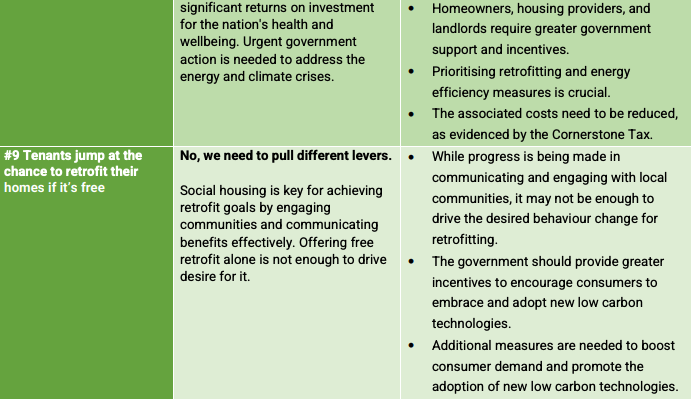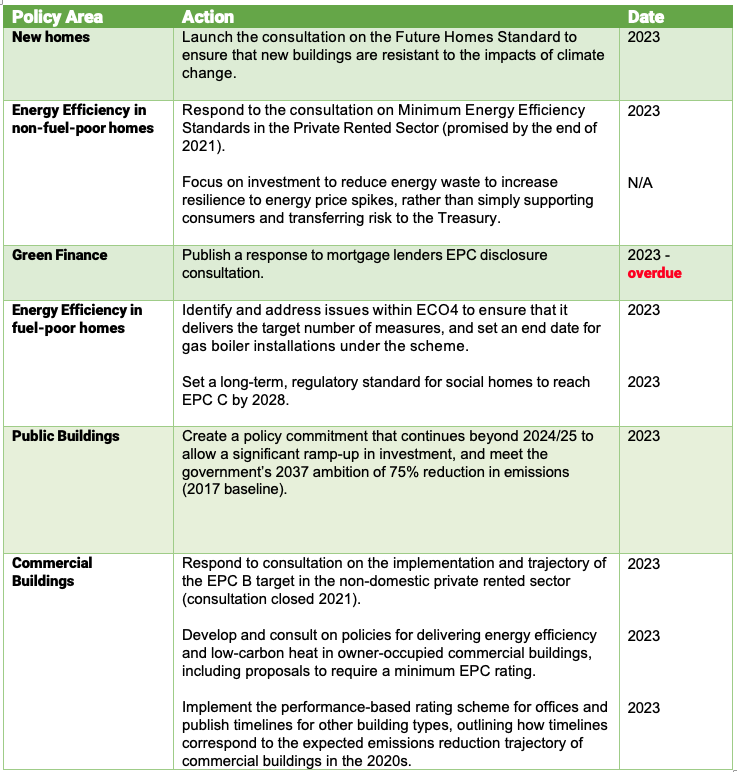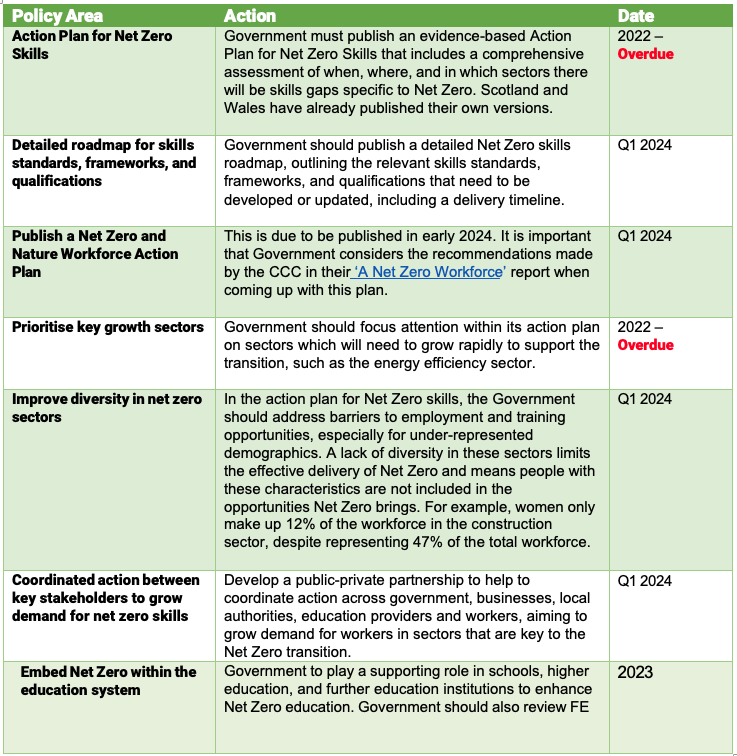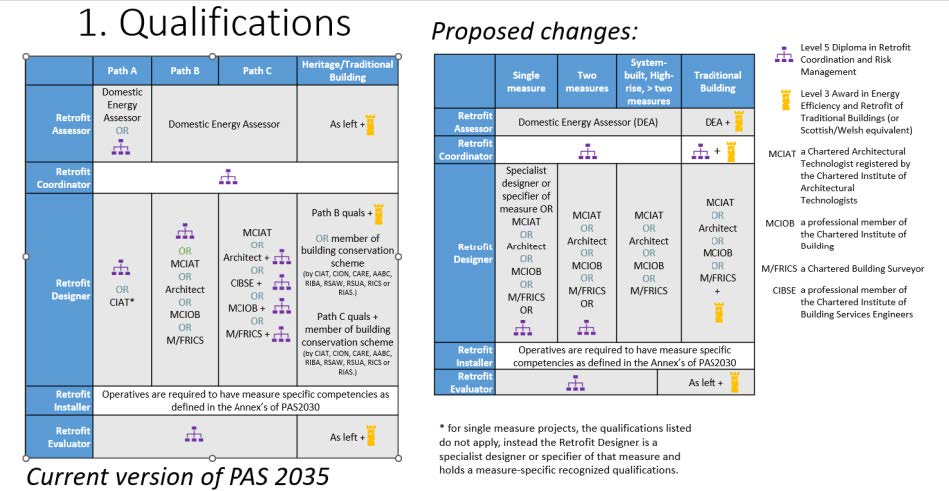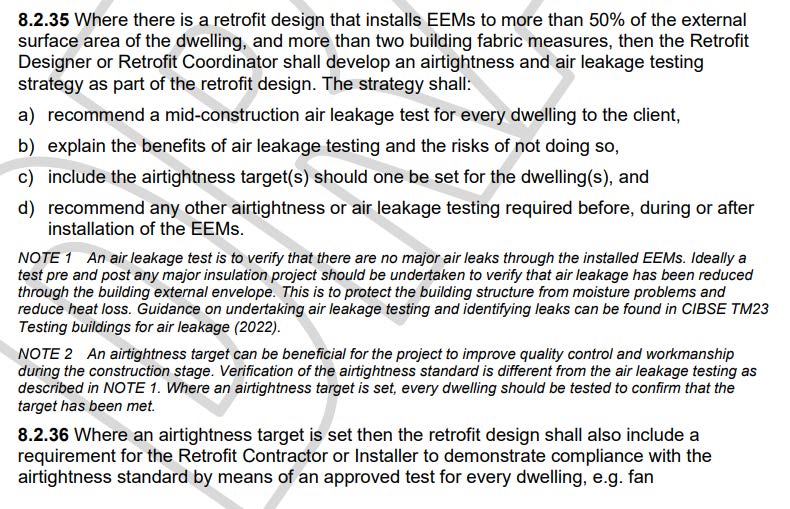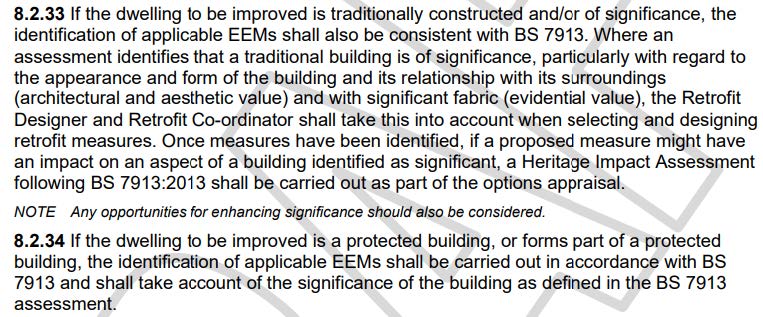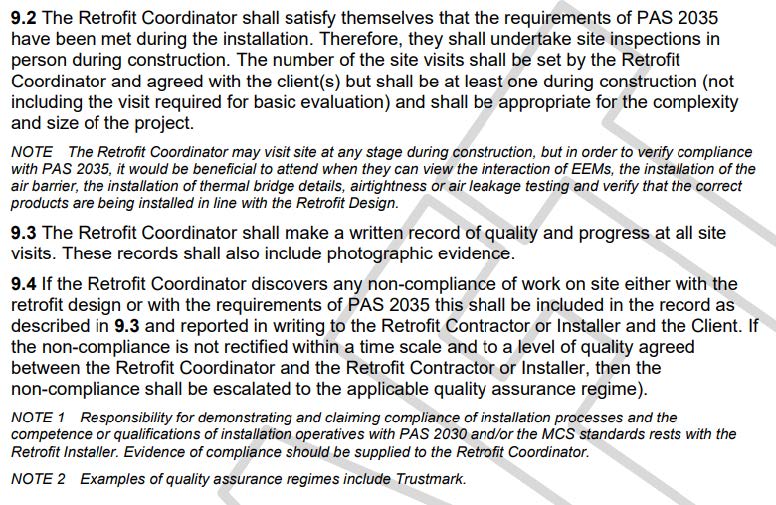
Energy Security and Net Zero Committee Call for Evidence: Heating our Homes
Closing Date: 11 September 2023
Response submitted by: National Insulation Association
For more information, please contact: info@nia-uk.org
About the National Insulation Association
The National Insulation Association (NIA) represents the insulation industry in the UK with a member base comprised of installers, system certificate holders, and manufacturers who provide a wide range of insulation solutions for homes and buildings. The NIA and its members are fully committed to maintaining and raising standards within the insulation industry.
For ECO4 retrofits where a full SAP assessment is required, do you agree with the proposal to update legislation to require that, after a transition period, only SAP10.2 be used?
The NIA agrees with the proposal to update legislation so that only SAP10.2 should be used, subject to the appropriate transition period.
An update to the SAP2012 framework is long overdue. SAP10.2 is more accurate than the existing SAP2012 framework, and is based on more up-to-date and reliable information. This is especially important given recent large fluctuations in energy prices. Therefore, SAP10.2 will result in more reliable energy performance data, which is beneficial for residents and retrofit businesses.
SAP10.2 will also better support the decarbonisation of homes. By providing a reduced value for the carbon emissions of electricity, it provides a greater incentive to install low carbon, electrical systems. This is an important update, which should help to facilitate and accelerate the transition to net zero homes.1 Since SAP10.2 is already in use across England, Scotland and Wales, industry should be capable of adapting to its use within ECO4 and Great British Insulation Scheme (GBIS) retrofits, especially given the proposed six month transition period.
Do you agree with a six-month transitional period from the date the amended legislation comes into force, during which either SAP2012 or SAP10.2 can be used for ECO4 retrofits that require a full SAP assessment? If not, please provide details of alternative transition arrangements?
Yes, we agree with the proposed six-month transition period. As this is the completion timeline for ECO4 projects that include a district heating element, this is an appropriate length for the transition.
Of the three options presented here for evidencing:
3.1 Which is your top preference and why?
3.2 Which is your second preference and why?
3.1) The NIA’s top preference is Option 2. This option minimises the transitional impact associated with updating from RdSAP2012 to RdSAP10.2 and it also avoids the administrative issues associated with operating two versions of RdSAP concurrently. We disagree with Option 3 because it risks a significant number of properties becoming ineligible for ECO4 funding, which in turn would result in lost business for the industry. It would also mean that fewer households can benefit from vital energy efficiency upgrades. This is an outcome that must be avoided. Modelling carried out by an NIA member, based on 5 different property archetypes with differing retrofit scopes, shows that RdSAP10.2 lowers both properties’ pre- and post-retrofit scores when compared to RdSAP2012. This decrease is particularly significant in projects that include renewables. Under Option 3, many retrofits will need to be evidenced using RdSAP10.2. There is a substantial risk that some of these retrofits will no longer meet the ECO4 Minimum Requirement (MR), particularly those that would have achieved a post-retrofit SAP band of mid to low C. Furthermore, the hard stop in Option 3 is too risky for installers, as a transition period is essential to effectively adjust to the changes to RdSAP. In practice, installers would avoid carrying out work on properties where their modelling shows that the post-retrofit SAP band will be close to the MR, as there is a risk that the project will not meet the MR when converted to RdSAP10.2. This will mean that many households miss out on energy efficiency measures because of the uncertainty involved in Option 3. Changing the goalposts for eligibility and evidencing overnight without any transition period would be disastrous. This would make a lot of projects ineligible and create dangerous confusion among installers. This would have a significant detrimental impact on scheme delivery. The NIA also has concerns about the workability of Option 1. Under this option, two versions of RdSAP would be running concurrently, which would place a large administrative burden on TrustMark and Ofgem as scheme providers. The software is not designed to support two versions of RdSAP running at the same time. Therefore, we have concerns that under Option 1, inadequate infrastructure and extra administrative complexity may delay projects and create bottlenecks within schemes. This will have damaging effects on both residents and installers. There is also a risk that having two versions of RdSAP running concurrently will create unnecessary confusion among installers.
3.2) The NIA does not have a second preference, as we believe that Option 2 is the only viable option. Neither Option 1 or Option 3 are practical or workable solutions for the reasons outlined in our response to Question 3.1.
For options 1 and 2, do you agree that 3 months following the introduction of RdSAP10.2 is sufficient to allow the completion of retrofits?
Yes, we agree that 3 months is a sufficient period to allow the completion of retrofits following the introduction of RdSAP10.2. Within ECO4, the majority of projects are shorter than 3 months. There may need to be some flexibility within this, as some complicated, multi-measure retrofits, particularly ones that may include a change of heating system, may have longer lead times. However, for most retrofits carried out under ECO4, 3 months is an appropriate timeframe. As GBIS is primarily a single-measure scheme, we do not foresee any issues with completing retrofits in 3 months under this scheme.
If RdSAP10.2 is introduced into other schemes, such as SHDF, which include large scale retrofit projects, then the transition period may need to be longer than 3 months. This is something the Government will need to consider when it introduces RdSAP updates into other schemes. However, considering most ECO4 installations are small retrofit projects, a 3 month period to allow completion should be achievable
Option 2 involves converting pre-retrofit SAP ratings from RdSAP2012 to RdSAP10. When this conversion takes place on the pre-retrofit SAP rating, there is a chance that some ECO4 retrofits may no longer meet the ECO4 minimum requirement (MR). What do you think the best approach would be to minimise this risk?
While we agree that Option 2 is the only viable option, we recognise the risk that some ECO4 retrofits may not achieve the MR once converted to RdSAP10.2, which will normally result in a lower SAP rating. It is vital that this risk is mitigated as much as possible, so that vulnerable households do not miss out much-needed energy efficiency upgrades and installers do not lose out on business.
We believe that the consultation’s proposal for installers to pre-lodge a post installation EPR based on RdSAP2012 to prove that they would have met the MR is a sensible approach to minimise this risk. Installers will generally carry out their own modelling before embarking on a retrofit project to forecast expected outcomes and ensure that they will meet the MR. This should provide sufficient evidence that a project would have met the MR, as long as, once the install is completed, installers verify that they have installed the measures included in the EPR.
Lowering the MR by half a SAP band is also a viable option. Although it is not as accurate or dwelling-specific as a pre-lodged EPR, it is a fairly simple approach which would not add much administrative complexity. It would also mitigate the risk of projects failing to meet the MR.
Under Option 2, the Building Research Establishment (BRE) would need to publish its conversion methodology, which would enable installers to quickly and easily convert pre-retrofit SAP ratings from RdSAP2012 to RdSAP10.2. To ensure that the change from RdSAP2012 to RdSAP10.2 runs as smoothly as possible, it is important that the BRE publishes this conversion methodology well in advance of March 2024 (the expected changeover date). Before the RdSAP updates come in, energy efficiency businesses will need time to gather existing data points and then go through existing EPCs, converting them to RdSAP10.2. Thus, it is critical that the Government decides on an approach and the BRE publishes its conversion methodology as soon as possible so that industry has sufficient time to prepare and adapt to the changes.
Do you agree with our proposal to not require Ofgem to update their scoring methodology for ECO4 following the change from SAP2012 to SAP10.2?
Yes, we agree with this proposal, as updating scoring methodology at this stage would create extra administrative complexity, which could impact upon scheme delivery.
Do you agree with our proposal to not require Ofgem to update their scoring methodology for the GB Insulation Scheme following the change from SAP2012 to SAP10.2?
We have concerns that the RdSAP and SAP updates will lead to properties being excluded from schemes. While we agree that an update of RdSAP and SAP is needed, it is vital that the Government implements the changes in a way that will mitigate the number of households being excluded from schemes.
As previously discussed in our response to Question 5, there is a risk that properties which would have achieved a post-retrofit score of mid to low SAP band C under RdSAP2012 may now drop into band D under RdSAP10.2. This could lead to a significant number of previously eligible properties now missing the MR. For installers, it will be too risky to treat marginal properties that may no longer meet the MR under RdSAP10.2 In practice, this could mean lots of vulnerable households are excluded from energy efficiency upgrades.
In order to achieve the scheme’s delivery targets and the UK’s net zero targets, it is important that energy efficiency upgrades are delivered to as many homes as possible. The UK has some of the least energy efficient properties in Europe2 , with many properties in urgent need of upgrade. According to the Office for National Statistics, 704,000 properties in England are still rated E, F and G.3 It is vitally important that the RdSAP/SAP update does not result in vulnerable, lowincome households missing out on much-needed support. National Energy Action’s latest estimates show that there are currently 6.6 million households in fuel poverty.4 As a result of energy price rises over the last year, millions of households across the UK are now struggling to pay their energy bills.
Thus, the Government’s primary consideration when implementing these changes must be to mitigate their impact on vulnerable, fuel poor households. As such, it is crucial that they take steps to ensure that as few households as possible become ineligible for energy efficiency support as a result of RdSAP/SAP updates. To minimise this risk, the NIA supports the Government’s proposed mitigation options, such as enabling installers to pre-lodge a postinstallation EPR and lowering the MR by half a SAP band.
Another issue which could arise from the updates to RdSAP/SAP concerns their interaction with the Minimum Energy Efficiency Standard (MEES). Since RdSAP10.2 generally leads to lower SAP scores than RdSAP2012, there is a risk that some private rented properties, which would have previously achieved MEES under RdSAP2012 may now no longer be compliant under RdSAP10.2. For instance if a landlord has upgraded their property to a SAP band of mid to low C in order to be compliant with proposed changes to MEES, there is a chance that a new EPC carried out using the RdSAP10.2 methodology would give the property a SAP rating of D, thus meaning the property will no longer be compliant once MEES rises to EPC C. While the NIA is supportive of MEES and efforts to raise levels of energy efficiency levels in the private rented sector, we would urge the Government to consider the interaction between RdSAP changes and MEES. This includes offering support where necessary to landlords and tenants to ensure that as many as properties as possible remain compliant with MEES.


